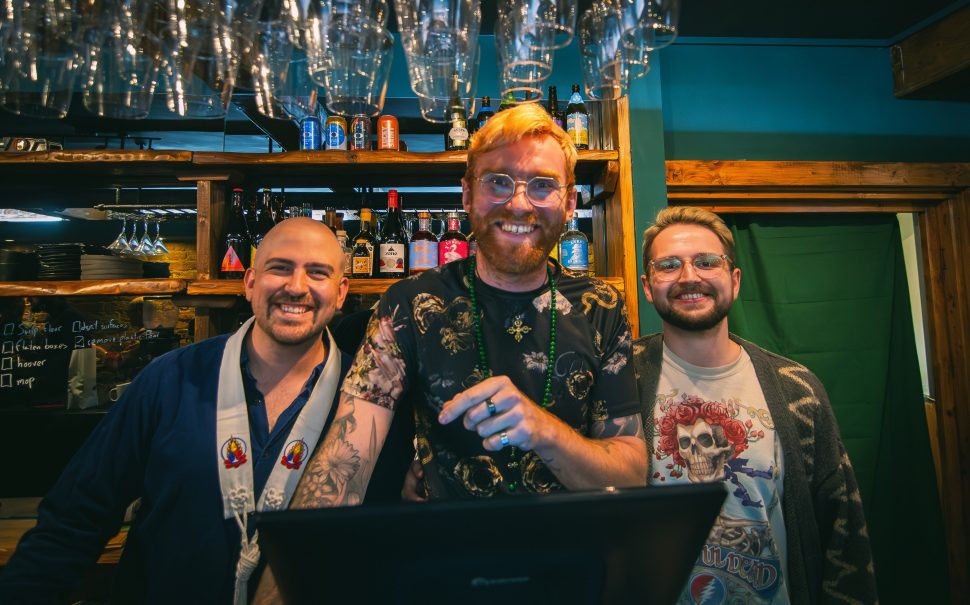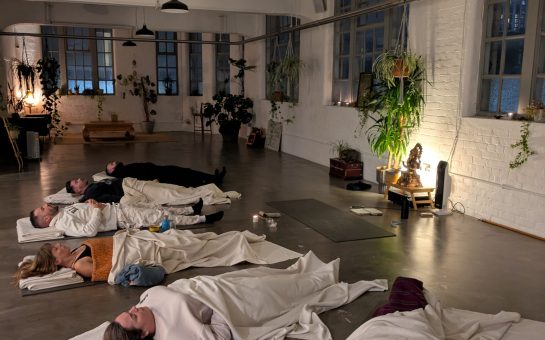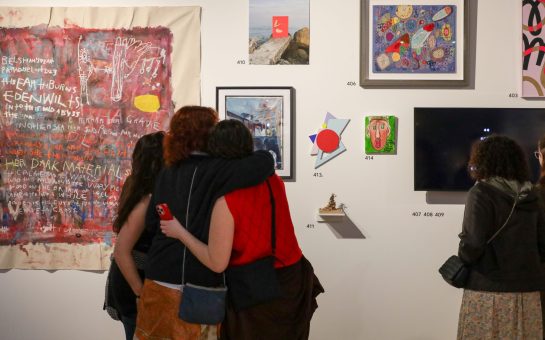Nestled away under the Manchester Buddhist Centre is an alcohol-free space which wants to be known for more than just that – they want to be a sustainable community centre for the city.
Hinterland has only been open for six months but the space has garnered interest for their alcohol free bar full to the brim with options. When you walk down the stairs at first glance it looks like a typical speakeasy bar, but you are greeted with a warm and welcoming environment which exudes calm.
Stephen Jeffereys, 33, is a co-founder of Hinterland along with his business partner Hatthaka Sanghadhara. The idea came together from Stephen’s own personal journey as a recovering alcoholic.
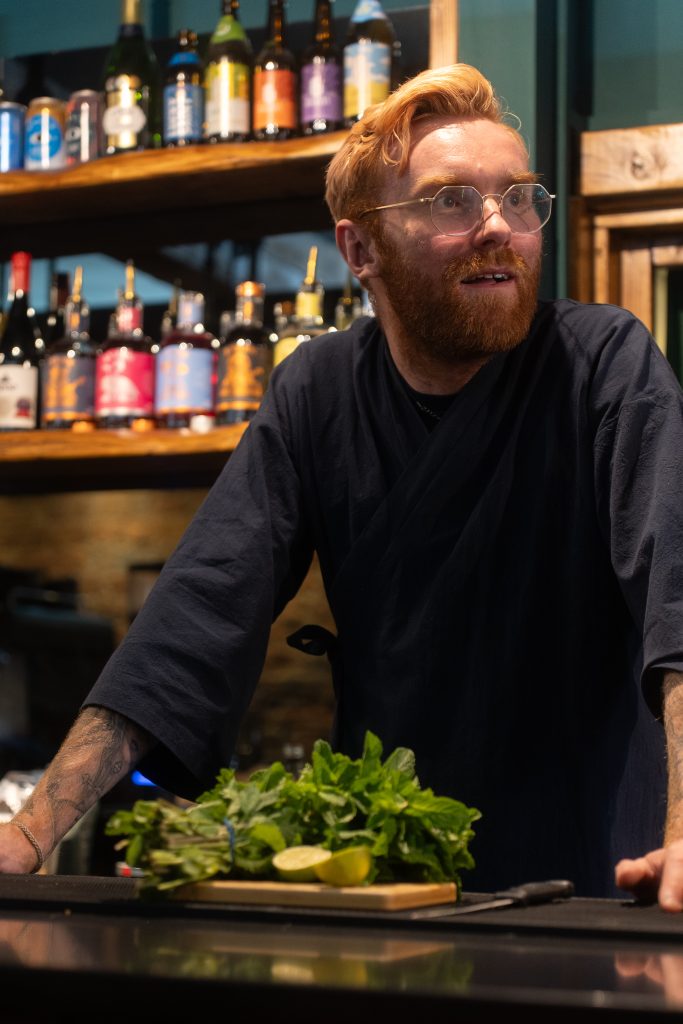
He worried that he wouldn’t be able to connect with people unless alcohol was involved but being in those spaces was too triggering for him. This experience led him to the concept of Hinterland, a place where connection is not dependent on alcohol but people.
I spoke with him about the space, the events they offer, young people’s engagement, and what he wants the space to be.
The background
Three years ago his business partner Sanghadhara had approached him to start a company underneath their apartment – in the very basement where Hinterland is situated now. Originally a Mexican and Japanese restaurant, the idea pivoted to an alcohol-free space when Stephen had found himself at a turning point.
He said: “I realised that my life as it was wasn’t quite working for me. Over the next few months of reflection, I decided to completely turn my life around and become better to help create Hinterland.”
His motivation behind starting the company was the UK’s alcohol culture – there is a perception that many of us only want to socialise when alcohol is involved. He wanted to prove that wrong.
Stephen explained: “From personal experience those connections are deeper rather than going out, having a load of beers and then telling your friends that you love them or finally opening up about something, and that sense of connection being completely dependent on alcohol.
“I suppose that that was the reason why I decided, okay, now is the time to get bold.”
For his personal journey, this was important to show people there are other ways to socialise without the need for alcohol, he said: “Sobriety is something near and dear to me. I am a recovering alcoholic, and I think a large part of my addiction came from feeling the need to drink to connect with people.
“My addiction is connection, I think we’re all addicted to connection, and there are just different ways to get it.”
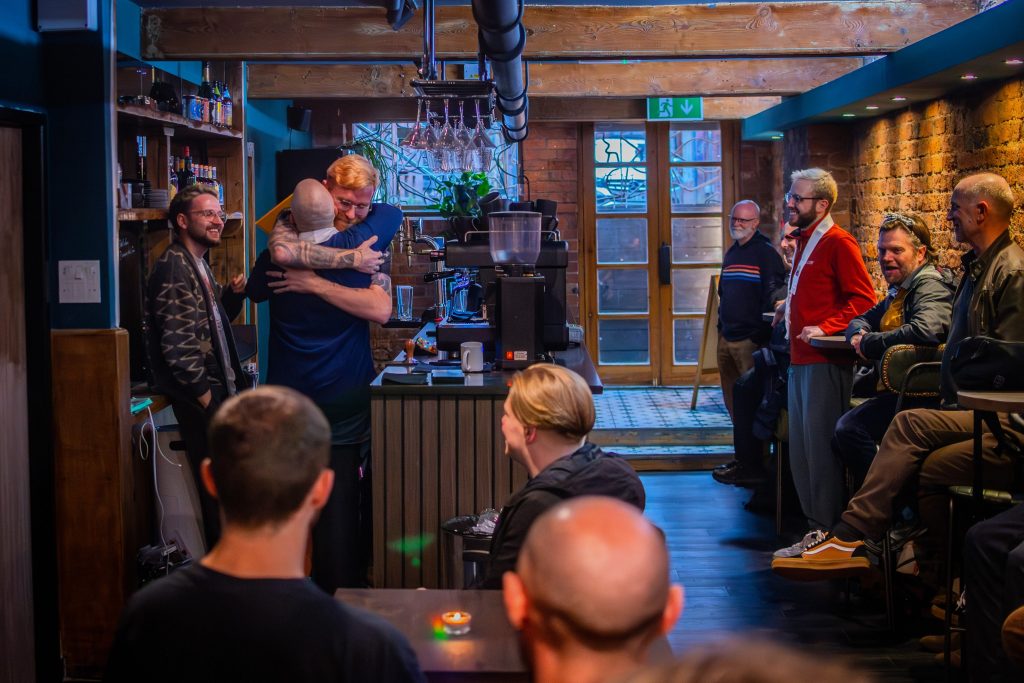
The events
What stands out about Hinterland is the events. From poetry nights to silent discos it is much more than just another bar. Stephen told me that the events had to hit one of the core values: communication, community, wisdom, and/or imagination.
He said: “I think they are really important in communicating what we’re about. Because if you come down on a normal day, you’ll get a taste of what we’re about but you won’t fully understand the importance of the values behind it.
“The name comes from the realm beyond the known, pushing boundaries that is what we’re trying to do. We don’t want to run events that you can find at every other bar in Manchester.”
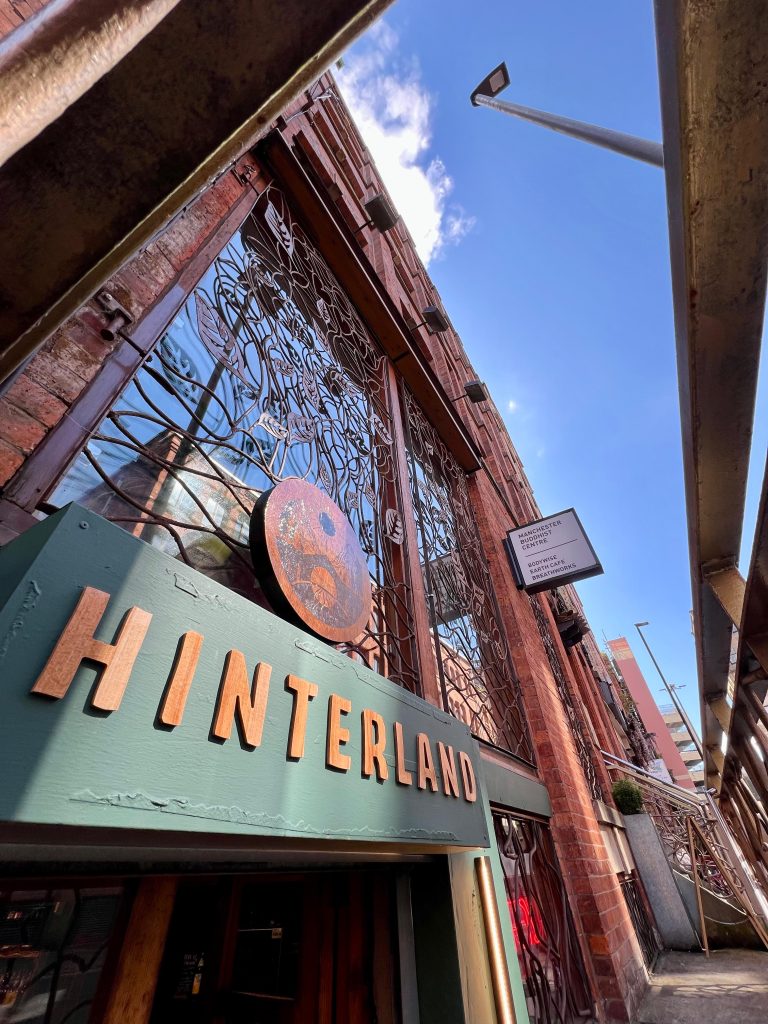
One of the unique events they host is the death cafe, which explores people’s relationships, experiences, and fears around the topic of death.
Stephen explained: “There’s no kind of experts or therapists or anything like that. It’s just broaching the subject as a group together and seeing if we can view it in a slightly different way.”
Looking ahead to their first Dry January, he was excited to show people the bar at its best.
He said: “It’s such a rich opportunity, and we will be really pushing the message into and over Dry January, because it’s a time when people are more open to it.”
Young people
One demographic the bar has a focus to engage is young people, and you can see why. According to Drinkware One in four members of Generation Z, those aged 18 to 24, are completely teetotal.
But Stephen said it would be a “mistake” to say it was their only target audience.
“We are a very broad coalition of customers. I’ve been really happy to see different ages coming in.”
He has enjoyed how younger people have positively engaged with the space.
He said: “They’ll talk to us and be open about either recovery journeys or their experience with alcohol or want to know more about the message behind Hinterland which is great, I hope that we can keep going.”
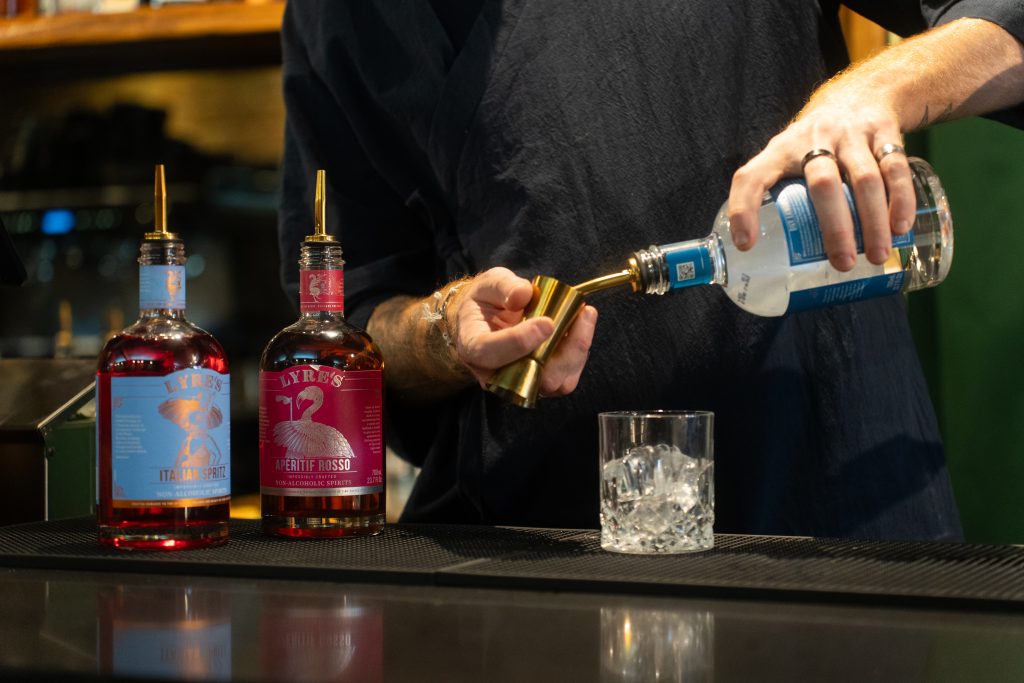
A community interest company (CIC) are ones which use their profits to grow the business and invest in projects which serve the community – rather than for private shareholders.
Stephen told me: “We’re a CIC. So we’re not for profit.”
Once they become profitable, they are looking to invest money into the community and causes which will “make the world a better place.”
“We don’t want to just reach young people to make money, we’re trying to bring about change and that’s where I think change can be done.”
A new community
I thought I’d conclude by asking Stephen how he thought people can engage with the space for it to thrive.
He said: “We’re a community, come and engage with the community. We have amazing food and drinks, but that’s a fraction of what we are.
“So come down and get a drink but talk to us. We’re not therapists, we’re not counselors or anything like that, but we’re pretty good listeners.”
The main goal for Hinterland is to become a community centre, he spoke about how Manchester seemed to be more disconnected and he wants Hinterland to be that focal point for the community.
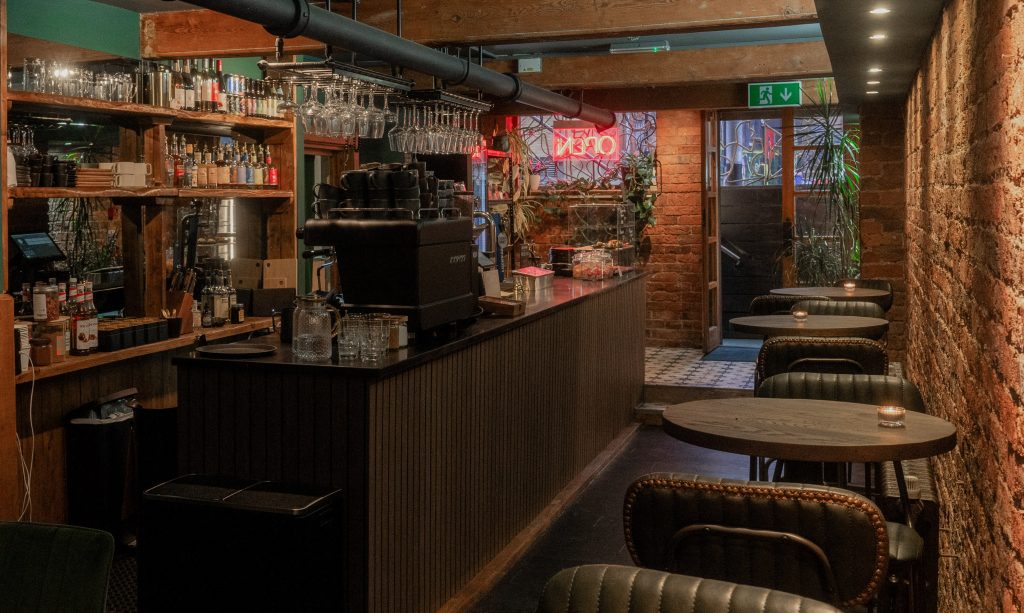
He said: “We’re here to serve the community, and not just the sober community or Buddhist community, but our whole community.
“Help us to create a community center, that would be the best way to interact with what we’re doing.”
Hinterland is a new bar with big ideas – and it will be interesting in the years ahead to see how they craft their community.
Hinterland is open Wednesday to Sunday and is located in Basement, 16-20 Turner St, Manchester M4 1DZ.
All image credits to Tom Van Berkel.
